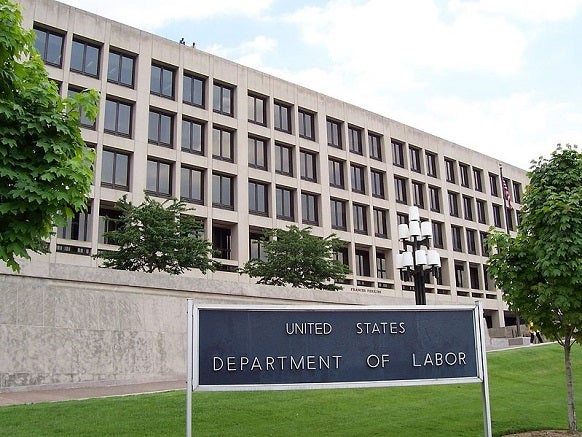News
New Federal Rule Rewards Contractors’ Fights for Fair Wages

For too long, the work of federal government contractors has been undervalued by the people who benefit the most from it – those in power. But that is about to change.
The U.S. Department of Labor (DOL) unveiled a final rule last week that will raise the minimum wage for federal contracts to $15 an hour in January, and will be indexed to inflation going forward. The new rule effects upwards of 390,000 workers – half of whom are people of color – and implements official federal standards based on the executive order signed by President Biden last April.
“In the Biden-Harris Administration, we are committed to an economy that works for everyone,” U.S. Labor Secretary Marty Walsh said. “This work begins close to home by ensuring workers on federal government contracts are paid a fair wage. … The fact is contract workers are essential workers, and critical to the federal government.”
For nearly a decade, the Teamsters have joined with federal contract workers and other labor allies to call for improved pay and treatment of these workers, many of whom interact with the policymakers that have ignored their pleas all these years.
A 2016 report, for instance, found that some 40 percent of federal contracting dollars went to firms that broke worker safety, health and wage laws. The companies’ violations of minimum wage laws alone cost workers an estimated $1.6 billion to $2.5 billion yearly.
Additionally, a Government Accountability Office investigation discovered that among the 50 companies receiving the largest penalties for violations of wage and hour laws between 2005 and 2009, half were federal contractors.
But that will change with the new rule and could even cause wages to rise for other workers. Ben Zipperer, an economist for the Economic Policy Institute, said annual wages will increase $3,100 a year for the average federal contract worker.
“One interesting consequence to look for is how much the policy may raise wages in the rest of the labor market, given substantial turnover in firms that are federal contractors,” Zipperer said in a tweet. “While not a substitute for a universal $15 min wage, there may be important spillover effects.”
In sum, this new rule – while not a panacea – is an important step towards the federal government recognizing that workers need to be treated with dignity and respect on the job. The Teamsters will be working to ensure that additional steps are taken in the months ahead that continue to reward hardworking Americans.